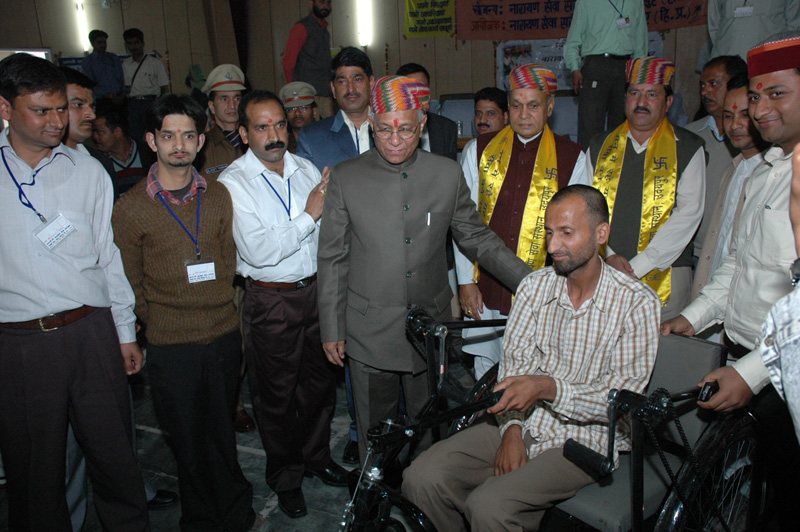New Delhi, May 30 (IANS) Vulnerable and curious youngsters make for a “soft target” for tobacco companies who glamourise their product, said experts as the age of onset of experiment with cigarettes or other form of tobacco worryingly fell to a startling 11-12 years.
WHO’s theme for the World No Tobacco Day this year on strengthening laws that ban promotion of such products has been welcomed by experts who claim that the age profile of first time tobacco users in India is falling at an alarming rate.
Sameer Malhotra, mental health expert at Max hospital who has worked in tobacco de-addiction centres, said the age of onset of experiment with cigarettes or other form of tobacco has fallen from 15-16 years to 11-12 years.
“The age profile of children who try cigarettes or some other form of tobacco for the first time, as an experiment, is falling, and that is a disturbing trend,” Malhotra told IANS.
Calling tobacco a “gateway” to other drugs, he added that as a corollary to tobacco use at an early age, experimentation with drugs like marijuana or cannabis is also now seen among young children, in classes 7-8, and college-goers.
One of the main reasons for the falling age profile, experts feel, is glamourising of such products by tobacco companies and advertising them – despite a ban in place.
The Cigarettes and other Tobacco Products Act (COTPA) 2003 prohibits all forms of advertising – direct, indirect or surrogate, promotion and sponsorship of tobacco products in all forms. It permits on-pack and Point of Sale (PoS) advertising with restrictions.
Bhavna Mukhopadhyay of the Voluntary Health Association of India (VHAI) blames the lack of strict implementation of the law, and the tobacco companies who resort to indirect advertising, for the continued high usage and sale of tobacco products.
“I agree that the government is doing a lot. COTPA talk about smoke-free places, and against advertising and promotion of tobacco products. Yet, implementation (of the Act) remains an issue, and tobacco related diseases and deaths make for one of the worst epidemics today. Tobacco companies know that half of who use tobacco end up dying, and yet they continue to target the soft targets, the youngsters,” Mukhopadhyay told IANS.
In India, 10 lakh people die every year because of tobacco usage. Ten percent of these deaths are because of second-hand smoke, smoke that fills restaurants, offices and enclosed spaces after somebody else has burnt a tobacco product.
There are “brands who are primarily tobacco manufacturers and because there is a law, they bring out other products, like soaps and toiletries, tea, drinking water, under the same brand name. They hardly even break even with the other products, but the aim is to advertise the brand name, so that they next time you are at a tobacco shop, seeing that name strikes a chord”, Mukhopadhyay said.
Malhotra agrees.
“Youngsters are a soft target, and when a tobacco company sponsors a youth event in a college, it’s like reaching out to them directly,” he said.
He also opines against serving flavoured hookahs, which recently got a go-ahead in Delhi restaurants with riders, because they are “soft ways of promoting a lifestyle” that may lead to smoking tobacco.
Oncologist U.B. Sharma feels that one of the measures that can be adopted is to make all public places smoke-free.
“Passive smoking is just as dangerous, pushing adults to cardiovascular problems, affecting children, and causing low birth-weight of babies in pregnant woman. This step will at least keep non-smokers safe.”
Mukhopadhyay adds that increasing taxes on tobacco products is a welcome step, and should be encouraged.
“Also, initiatives like the two-three spots on mouth cancer of a young boy, and tar in your lungs because of smoking, before every movie in cinema halls is good. I have seen people cringe at those scenes…that is the exact idea,” she said.
(Azera Rahman can be contacted at [email protected])
The opinions, beliefs and viewpoints expressed by authors, news service providers on this page do not necessarily reflect the opinions, beliefs and viewpoints of Hill Post. Any views or opinions are not intended to malign any religion, ethnic group, club, organization, company, or individual.
Hill Post makes no representations as to the accuracy or completeness of any information on this site page.


